There are many materials suitable for achieving a quality job in rapid prototyping. For example, common ones include metals and plastics. Every material you come across being used in rapid prototyping is better suitable for a particular process. For example, when you talk about metals, you talk about fast prototyping processes such as CNC machining or sheet metal fabrication.
In terms of injection molding, there are also many materials you can use. While these materials might be suitable for other methods, they can deliver high quality when used by an experienced engineer in custom plastic injection molding. Choosing the right materials can be a little challenging. Therefore, this article introduced the standard materials for custom injection molding. Go through the list below, and you will find a material suitable for your project.
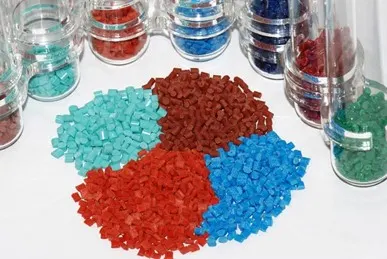
Common Materials You Can Use in Plastic Injection Molding
The right material for custom injection molding depends on factors such as extrusion property, hardness, quality, compatibility, and, most importantly, cost. Based on these factors, selection might be a little daunting. However, the materials listed below are quite suitable.
ABS Overview
ABS or Acrylonitrile Butadiene Styrene is an injection molding material known for its unique properties (omnexus has a detailed guide on this). It has a wide temperature range, good stability, and is a good insulator. You would have likely seen a common ABS product is the Lego toy, and you would know how strong they were.
Benefits of Using ABS in Custom Plastic Injection Molding
ABS is a popular material because of its unique properties. Below are a few:
- ABS is a very tough impact-resistant plastic.
- It has a low shrink and dimensional stability.
- ABS is resistant to acid bases and other organic solvents.
- Most importantly, it is inexpensive.
Applications of ABS Material
ABS material is suitable for making many products via custom injection molding. Popular applications of the custom injection material include:
- Handheld devices
- Housings and moldings for electrical tools,
- Computers and telephone components.
Considerations When Using ABS Material in Injection Molding
ABS material used in custom injection molding can lead to the formation of knit lines, sink, and voids in dense areas. You can reduce the tendency of the sink to occur by switching to ABS/PC blend.
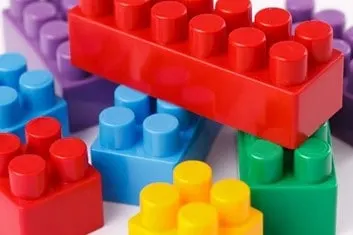
PC Overview
PC or Polycarbonate is another common material known for its transparency or high impact resistance. Consequently, it is a popular material in making eyewear, LED lights, and transparent windows.
Benefits of Using PC in Custom Plastic Injection Molding
Polycarbonate has many unique properties making it a suitable material. Below are a few benefits of using PC
- PC is a solid and impact-resistant custom injection material.
- It has low shrink and good dimensional stability.
- It is a transparent material
- Polycarbonate has good heat resistance
Application Using Polycarbonate
Popular applications of the custom injection material include:
- Lenses
- Indoor and outdoor lighting
- Cell phone housings
- Bulletproof glass.
Considerations When Using PC Material in Injection Molding
Thick sections might have penalties evident in voids, bubble, and sink formation. It can also lead to some polycarbonate parts having poor chemical resistance. An ABS/PC blend is a good alternative for opaque parts with these issues, and Acrylic (outlined below) is another option for parts with thick geometries.
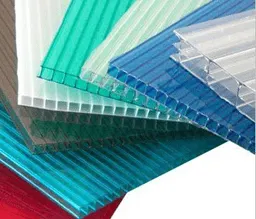
PVC Overview
PVC or Poly Vinyl Chloride is one of the most popular plastics used worldwide. It is strong and brittle. Consequently, it is a crucial plastic in making insulation for electric wires and making pipes for plumbing.
Benefits of Using PVC in Custom Injection Molding
PVC has many unique properties. Below are a few of its benefits.
- It has a relatively low price.
- It has resistance to acid, bases, and other forms of environmental degradation.
- It is very hard and rigid
- It is easily recyclable.
Application Using PVC
PVC has a wide range of applications. Below are a few of its applications
- Insulation for wires
- Flooring for homes
- Plumbing
Considerations When Using PVC in Injection Molding
Injection molding manufacturers, like rapiddirect.com, that work with PVC should have a good ventilation process as its use can lead to the outflow of toxic chlorine gas. Also, corrosive tools should be employed when working with PVC
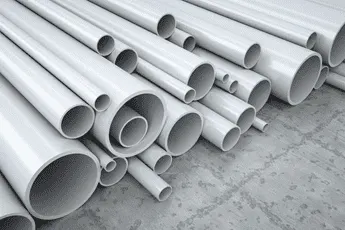
PA Overview
Nylon plastic (PA) is a synthetic thermoplastic polymer known for its versatility, durability, flexibility, and affordability.
Benefits of Using PA in Custom Injection Molding
PA use in custom injection molding is a result of its many benefits. Below are a few that can make you select it as the right method
- There are many types of PA you could choose from
- PA has high strength and high-temperature strength
- It is chemically resistant, except to strong acids and bases.
- Depending on the grade, PA materials are hard, stiff, and are abrasion-resistant.
- It is cost-effective
Application Using PA
PA is used in a wide range of industrial and non-industrial functions. Below are a few of its application
- Thin-walled features,
- Combs,
- Gears and bearings,
- Structural parts (with glass
- Under-hood components
Consideration When Using PA Material in Injection Molding
Nylon is more susceptible to warping. Therefore, you should check the type of nylon you use. Also, if the product will be used in a high humid environment, avoid using nylon as it will absorb moisture.
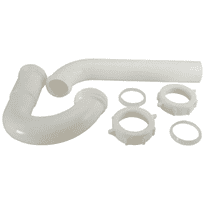
PMMA Overview
PMMA or Polymethyl methacrylate/Acrylic is a popular and effective manufacturing method known for its high-quality plastic parts and prototypes.
Benefits of Using PMMA in Custom Injection Molding
PMMA has many unique properties, making it a beneficial custom injection molding material used worldwide. Below are a few of its benefits.
- It has good optical properties.
- It is scratch-resistant.
- Acrylic has low shrink and less sink in geometries.
Application Using PMMA
PMMA is used in a wide range of industrial and non-industrial functions. Below are a few of its application
- Light pipes
- Lenses
- Light shades
- Optical fibers
Consideration When Using PMMA Material in Injection Molding
Acrylic is brittle, making it susceptible to stress cracking. To correct this, you could use a draft. Also, acrylic or PMMA has poor chemical resistance.
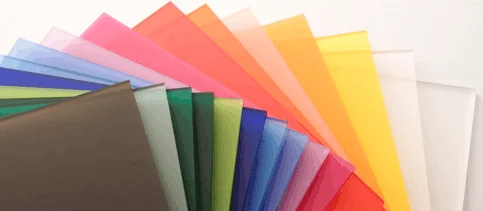
PS Overview
Polystyrene is a popular injection molding material with bending and flexible properties. Therefore, making disposable materials with a hinge setup is an important part. It is also used in making insulators and sheets for laminating floors.
Benefits of Using PS in Custom Injection Molding
PS has many unique properties. Therefore, it is an important custom injection molding material. Below are a few of its benefits:
- It is transparent
- Safe for packaging food and consumable materials
- It is very rigid
- It is inexpensive
Application Using Polystyrene
PS is suitable for making many products via custom injection molding. Popular applications of the custom injection material include:
- Integral hinges or living hinges
- Snap-over lids
- Medical pipette tubing.
Consideration When Using PS Material in Injection Molding
Considerations: Thick sections in part geometry can void and show bubbles. Shrink and warp may also occur in PP parts. K-Resin is a good alternative if the part has living hinges that require higher stiffness.
PP Overview
Polypropylene is a plastic used in injection molding known for its glossy surface, chemical resistance, and elastic properties. These properties make it suitable for making products used in the food industry, e.g., plastic kitchenware, safe dishwasher plates, and storage containers. It is also applicable in making toys, hard luggage containers, and car parts.
Benefits of Using PP in Custom Injection Molding
PP is a popular custom injection molding material because of its unique properties. Below are a few you should consider.
- It does not react with most bases and acids
- It is elastic, i.e., it retains its shape stress
- It has strong insulation properties
Application Using PP
PP is used in a wide range of industrial and non-industrial functions. Below are a few of its applications:
- Integral hinges or living hinges
- Snap-over lids
- Medical pipette tubing.
Consideration When Using PP Material in Injection Molding
There can be an occurrence of shrinking and warping. It can also show void and show bubbles in thick sections.
Final Thoughts
Choosing the right custom injection molding materials can be challenging since they have different features. If you are planning to start your injection molding project, only with the design is not enough; finding experienced people to cooperate with would help save time and money.
